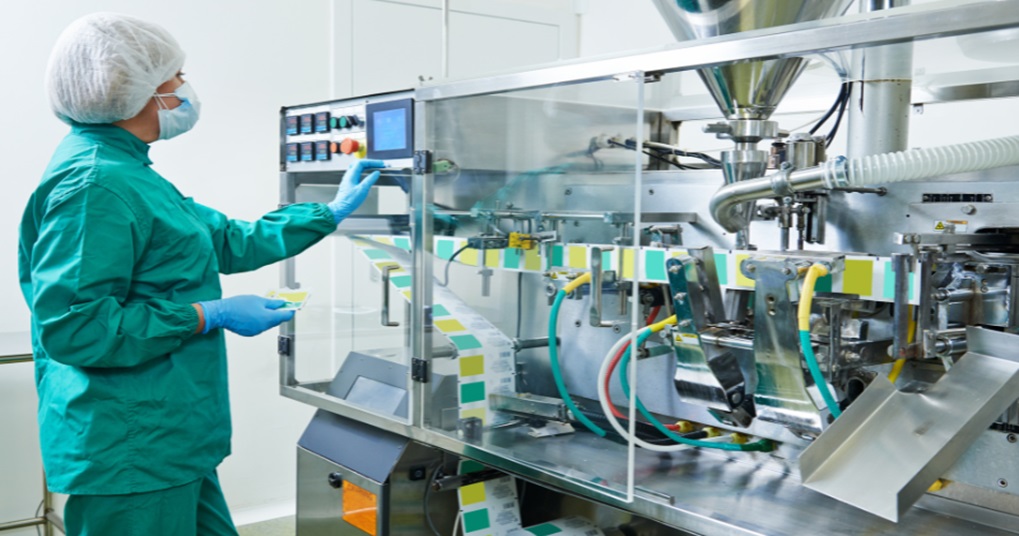The pharmaceutical industry relies heavily on various filtration processes to ensure product purity, safety, and efficacy. Filtration is a critical component in the manufacturing of pharmaceuticals, playing a pivotal role in every stage of production, from raw material processing to final product formulation.
Highlighted in this article is significance of pharmaceutical filtration equipment in maintaining industry standards.
Purification of Raw Materials
Pharmaceutical products begin with the highest quality raw materials to ensure the final product’s safety and efficacy. Filtration is the first step in purifying these materials, removing contaminants that may compromise the production process. Solid particles, bacteria, and other impurities are filtered out using various pharmaceutical filtration equipment, such as depth filters, membrane filters, and cartridge filters. These filtration systems are designed to handle different levels of contamination and particle sizes, ensuring that the raw materials meet stringent quality standards.
The process of raw material filtration not only ensures the removal of unwanted particles but also helps in achieving the desired consistency and stability of the materials. By eliminating impurities at this early stage, pharmaceutical companies can avoid potential complications later in the production process. Pharmaceutical filtration equipment is thus indispensable in maintaining the integrity of raw materials, setting a solid foundation for the subsequent stages of drug development.
Filtration also aligns with regulatory requirements. Regulatory bodies mandate strict quality control measures to ensure that pharmaceutical products are safe for consumption. Effective filtration systems help companies meet these regulations, ensuring that their products are free from harmful contaminants.
Sterilisation of Equipment and Production Environments
Ensuring a sterile production environment is vital in the pharmaceutical industry to prevent contamination that could affect product quality and patient safety. Filtration systems play a critical role in sterilising pharmaceutical equipment and production areas. Air filtration systems, such as HEPA filters, are used to maintain cleanroom standards by removing airborne particles, microorganisms, and other contaminants. These systems are essential for creating a controlled environment where pharmaceutical products can be manufactured without the risk of contamination.
Liquid filtration is another aspect of sterilisation in the pharmaceutical industry. Filtration equipment such as sterilising-grade filters are used to remove bacteria, viruses, and other pathogens from liquid solutions. This is particularly important in the production of injectable drugs, where even the smallest contaminant can pose a significant risk to patient health. Pharmaceutical filtration equipment ensures that all solutions are sterile and safe for use in medical treatments.
Furthermore, the sterilisation of the equipment itself is critical. Filters are used to clean and sterilise production machinery and tools, ensuring that no contaminants are introduced during the manufacturing process. This comprehensive approach to filtration helps maintain the highest standards of cleanliness and safety in pharmaceutical production facilities.
ALSO READ: A Comprehensive Guide to Nanofiltration Membranes
Clarification and Polishing of Final Products
Once the raw materials have been purified and the production environment sterilised, filtration continues to play a vital role in the clarification and polishing of the final pharmaceutical products. During the manufacturing process, products often contain suspended solids, unwanted by-products, and other impurities that need to be removed to achieve the desired purity and quality.
Clarification filtration involves the use of filters to remove these particulates, resulting in a clearer and more refined product. Depth filters and activated carbon filters are commonly used in this stage to achieve high levels of clarity. These filters are designed to capture fine particles and absorb unwanted substances, ensuring that the final product meets the required specifications.
Polishing filtration is the final step in the filtration process, aimed at achieving the highest level of product purity. Membrane filters with extremely fine pores are used to remove any remaining impurities, resulting in a product that is free from contaminants and suitable for medical use. This step is crucial for products such as injectable drugs and ophthalmic solutions, where even minute impurities can have serious implications.
Pharmaceutical filtration equipment used in clarification and polishing must be highly reliable and efficient, as the quality of the final product depends heavily on this stage. The use of advanced filtration technologies ensures that pharmaceutical companies can consistently produce safe and effective products for patients.
Ensuring Consistency and Quality Control
Filtration in the pharmaceutical industry is not limited to purification, sterilisation, and clarification processes. It also plays a vital role in ensuring consistency and quality control throughout the entire production process. Consistency in pharmaceutical products is essential to ensure that each batch meets the same high standards and delivers the same therapeutic effects.
Filtration systems are used at various stages of production to monitor and control the quality of the products. In-process filtration helps in removing impurities that may have been introduced during manufacturing, while final filtration ensures that the end product is free from contaminants. This multi-layered approach to filtration helps maintain the consistency and quality of pharmaceutical products, reducing the risk of product recalls and ensuring patient safety.
Quality control measures involving filtration also help in detecting any deviations from standard manufacturing practices. Regular filtration tests can identify potential issues early in the production process, allowing for timely corrective actions. Pharmaceutical filtration equipment is thus integral to maintaining high-quality standards and ensuring that every product released into the market is safe and effective.
Conclusion
Filtration is a cornerstone of the pharmaceutical industry, essential for the production of safe and effective medical products. From purifying raw materials to ensuring a sterile production environment, and from clarifying final products to maintaining consistency and quality control, filtration plays a critical role at every stage of pharmaceutical manufacturing. High-quality pharmaceutical filtration equipment is indispensable for achieving the stringent standards required in this industry.
For more information on how advanced filtration solutions can benefit your pharmaceutical production, contact SepPure today.

